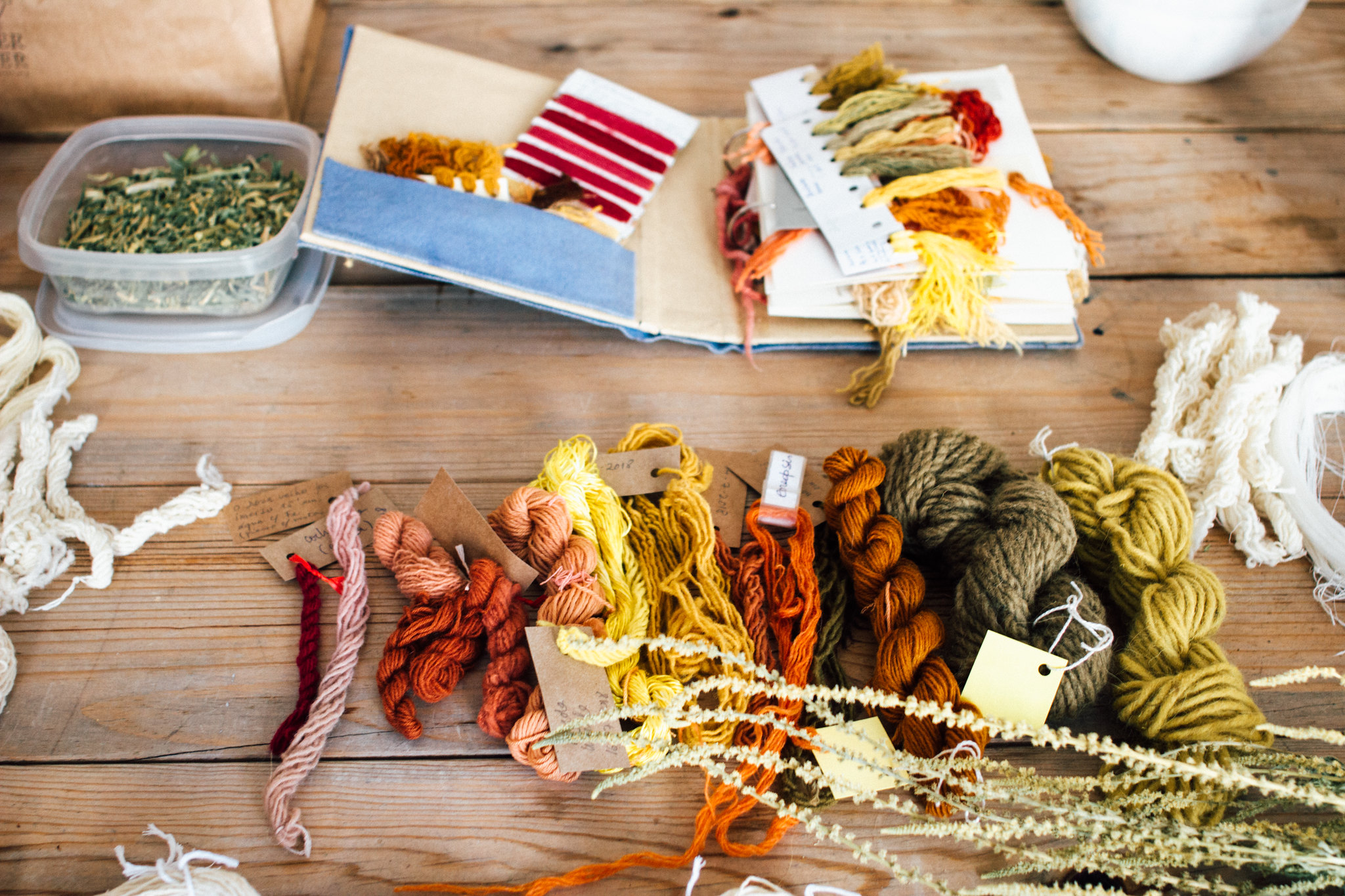On Natural Dying

What does natural dyeing mean? A Colourful Heritage, A Sustainable Future
Natural dyeing is the practice of extracting colour from natural materials—plants, fungi, roots, and even insects; to dye textile fibres such as wool, cotton, silk, and linen. This ancient craft has been practiced for thousands of years across cultures, shaping traditions and giving identity to communities. From the indigo blues of Asia to the deep reds of Mediterranean madder, natural dyes tell stories of place, biodiversity, and resourcefulness.
Unlike synthetic dyes, which emerged only in the 19th century and are today responsible for large-scale pollution in the textile industry, natural dyeing is rooted in ecological balance. It requires knowledge of local flora, careful preparation of fibres, and time-honoured processes of extraction and fixing. Natural dyeing is therefore more than a technique: it connects science, art, and sustainability.
Why Does Natural Dyeing Matter Today?
The textile industry is among the most polluting in the world. Industrial dyeing relies heavily on chemicals, enormous amounts of water, and energy-intensive processes. By contrast, natural dyeing shows how colour can be created through methods that support biodiversity, rely on small-scale production, and make thoughtful use of resources.
As part of CommunityCloth, natural dyeing plays a key role in fostering farm-to-cloth ecosystems. By growing dye plants alongside food crops allows communities to diversify their production, improve soil health, and reclaim knowledge that has been overlooked by industrialisation. CommunityCloth not only focuses on teaching this craft but it aims to offer alternative ways of living and producing for communities.
CommunityCloth’s Role
Through Erasmus+ funding, CommunityCloth is creating technical workbooks, digital materials, a pilot programmes and a network of educators equipped to implement programmes fostering sustainable urban practices. This network will serve as a crucial resource for disseminating knowledge and supporting the establishment of communal farms, to help promoting economic growth and job creation within urban communities.
The project connects Cyprus, Portugal, and beyond, fostering the development of communal farms, support farm-to-cloth productions using textiles as a complement to food production, and create new job opportunities in urban areas.
